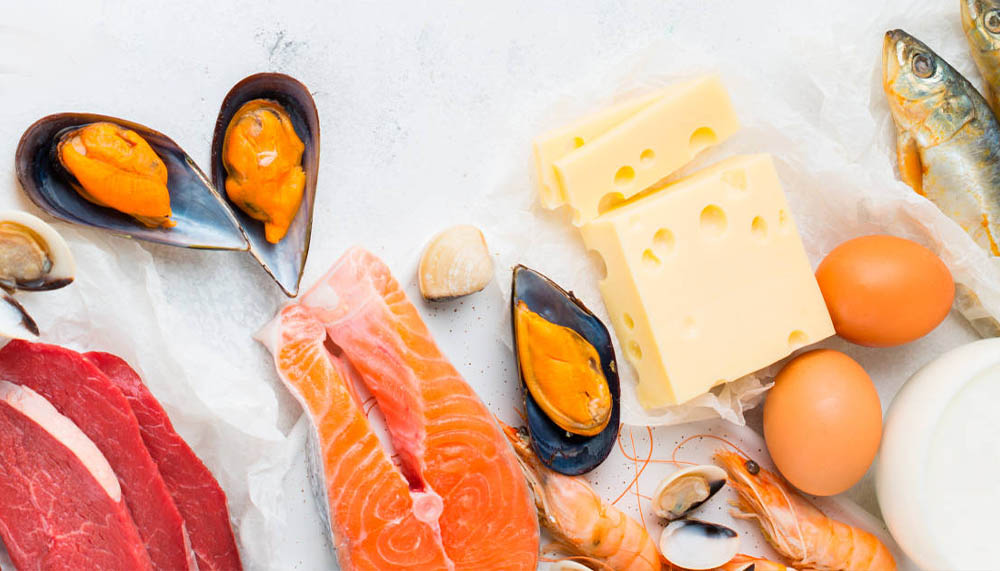Vitamin B12’s Potential: Adding Nutritious Foods to Your Diet
Introduction
Cobalamin, another name for vitamin B12, is a vitamin that dissolves in water that is vital to many important body processes. It is essential for red blood cell creation, DNA synthesis, and the preservation of vibrant nerve cells. Anemia, neurological disorders, exhaustion, and other medical conditions can result from a vitamin B12 shortage.
Although the major sources of this essential component are meat and dairy products, you may maintain appropriate amounts of B12 by eating a variety of foods. This post will discuss the significance of vitamin B12, its roles in the body, and a variety of foods high in this vital nutrient.
The Importance of Vitamin B12
Vitamin B12 is essential for several key functions in the body:
- Formation of Red Blood Cells: Hemoglobin, the protein in red blood cells that carries air around the human body, is synthesized with the help of vitamin B12. Fatigue and weakness are the hallmarks of megaloblastic anemia, which can result from a deficit.
- Neurological Health: B12 is necessary to keep nerve cells in a healthy state. Inadequate amounts may result in neurological issues such as tingling, memory loss, and trouble focusing.
- DNA Synthesis: The synthesis of genetic material and DNA replication depend on vitamin B12. It is necessary for growth and progress.
- Energy Production: By aiding in the breakdown of proteins, lipids, and carbohydrates, vitamin B12 contributes to the conversion of nutrients into energy.
- Cardiovascular Health: Sufficient B12 levels assist control homocysteine levels, an amino acid which when raised can lead to heart issues. This lowers the risk of heart disease.
Also Read : https://diet2habit.com/diet/caloric-intake-and-energy-balance/
Foods Rich in Vitamin B12
- Meat: Among the most beneficial sources of vitamin B12 are a variety of meats, particularly meats from organs like liver. Poultry, lamb, and beef are other great choices.
- Seafood: Fish, especially oily fish like haddock, salmon, and trout, are good sources of vitamin B12. Good sources also include shellfish like oysters, mussels, and clams.
- Dairy Products: Dairy-based goods such as cheese, yogurt, and milk can supply a substantial quantity of vitamin B12. For better health, choose dairy products with reduced or no fat.
- Eggs: A wholesome and adaptable way to obtain vitamin B12 are eggs. They may be added to salads and omelets, among other meals.
- Foods fortified with vitamin B12 include a variety of plant-based and vegan-friendly foods such cereals for morning meal, milk made from plants (almond, soy, or rice milk), and animal alternatives. For those who are vegetarians or vegans, these are great options.
- Vegans and vegetarians frequently use lactic acid as a food component. It is not only cheesy and nutty, but it also fortifies food with vitamin B12.
- pills: Under the supervision of a medical professional, take vitamin B12 pills or B12-fortified vitamin pills if your diet is low in B12.
Conclusion
Red blood cell development, brain functioning, and other essential body processes are all supported by vitamin B12. You can assist ensure that your levels of vitamin B12 remain adequate by eating a balanced diet that includes a range of foods high in B12. You may reap the numerous advantages of this important vitamin by include meat, fish, dairy, eggs, and fortified plant-based alternatives in your diet. Remember to speak with a healthcare provider to find out your individual B12 requirements, especially if you have any food habits or limits.
Critical biological processes such as the production of red blood cells and the preservation of brain health depend on vitamin B12. It’s crucial to include a variety of B12-rich foods in your balanced diet to guarantee you have enough vitamin B12.
For Latest News & Updates : https://indiansupdate.com/

